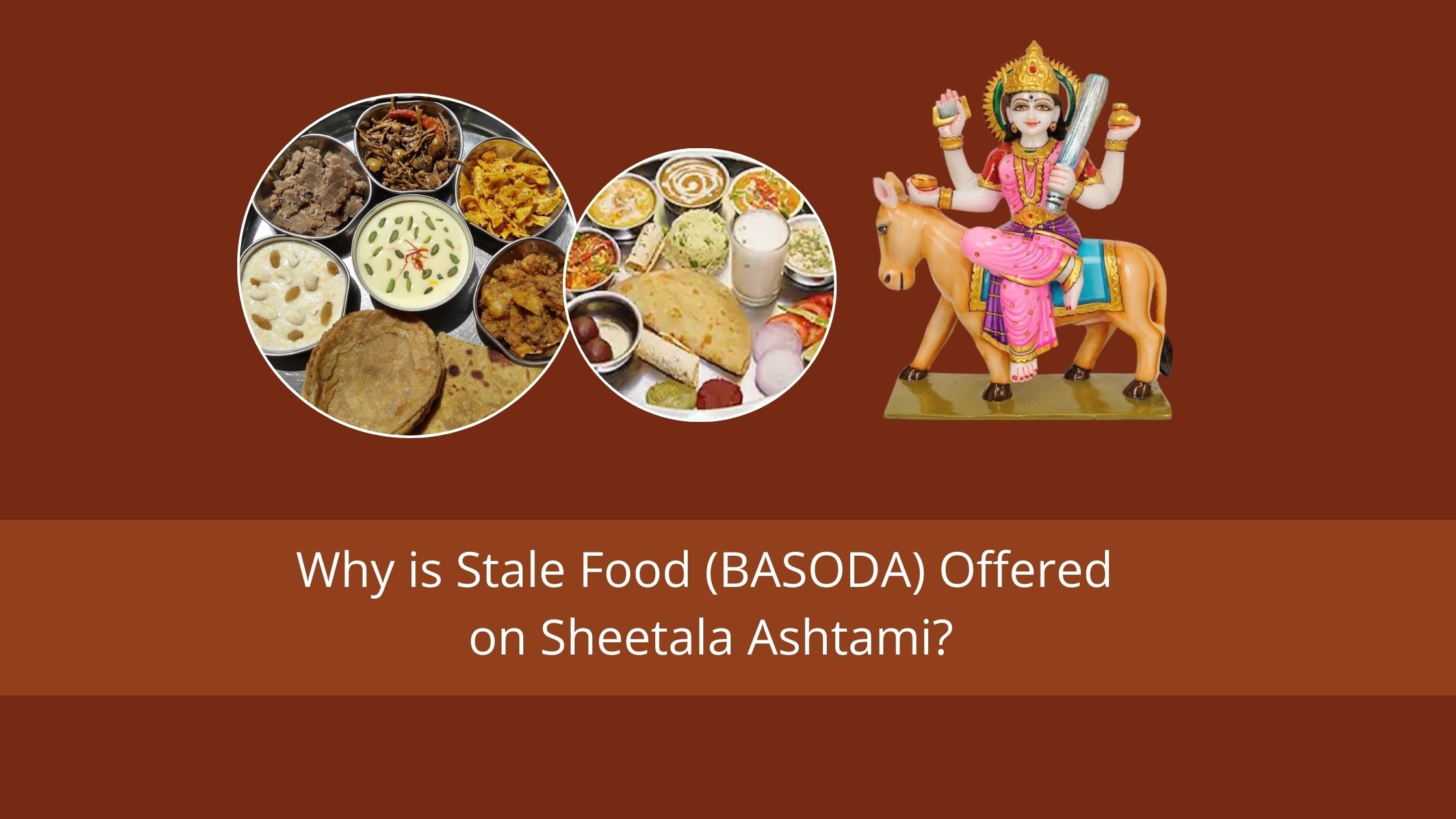
Hindu traditions are deeply rooted in spirituality, science, and devotion, and one such fascinating festival is Sheetala Ashtami. Also known as Basoda, this festival is dedicated to Goddess Sheetala, the divine protector against diseases like smallpox, measles, and other infections. One of the unique aspects of this festival is the tradition of offering stale food (Basoda) to the Goddess.
But why do devotees prepare food a day before and consume it cold on Sheetala Ashtami? Is it just a ritual, or does it have a deeper significance? Let’s explore the spiritual and scientific meanings behind this ancient tradition.
Goddess Sheetala is regarded as the healer and protector from contagious diseases. Her name, derived from the Sanskrit word "Sheetal", means "cool" or "calming," symbolizing her power to cure heat-related ailments and infections. Devotees worship her to seek protection from seasonal diseases, especially in the transition periods between winter and summer.
On Sheetala Ashtami, cooking is strictly prohibited, and devotees eat food prepared a day earlier. This practice is a form of surrender and discipline, showing devotion to the Goddess by following her prescribed rituals. The belief is that Goddess Sheetala dislikes heat and hot food, so devotees offer cold or pre-cooked meals to please her and seek her blessings for good health.
Sheetala Ashtami falls during the seasonal transition when temperatures begin to rise, making people prone to heat-related illnesses and stomach infections. Eating stale food, which has cooled naturally, helps the body adjust to these changes. In the past, refrigeration wasn’t available, and food cooked a day before would naturally ferment, leading to the growth of probiotics that aid digestion and boost immunity.
Stale food is symbolic of letting go of negativity, excess heat, and impurities from the body and mind. It teaches devotees simplicity, patience, and the ability to detach from materialistic cravings, which is a fundamental principle in Hindu philosophy.
Ancient traditions often incorporated elements of rest and rejuvenation into religious practices. By avoiding cooking on this day, families—especially women—get a well-deserved break from their daily routine. This pause allows them to focus on prayers, family bonding, and introspection, strengthening their connection with spirituality.
Devotees prepare basi (stale) food a day before and consume it without reheating. Some common dishes include:
Modern science backs the benefits of this ritual in the following ways:
Sheetala Ashtami is not just a festival; it is a blend of devotion, tradition, and health awareness. The practice of offering stale food reflects the deep connection between nature, spirituality, and human well-being. While it may seem unusual, the scientific and spiritual significance behind this custom proves that our ancestors had a profound understanding of life and nature.
So, the next time you observe Sheetala Ashtami, remember—you are not just following a ritual but embracing age-old wisdom that promotes health, faith, and mindfulness.
Did you know about this tradition before? Share your thoughts in the comments on the link https://forms.gle/RMs3hVzHNBRPovLD7